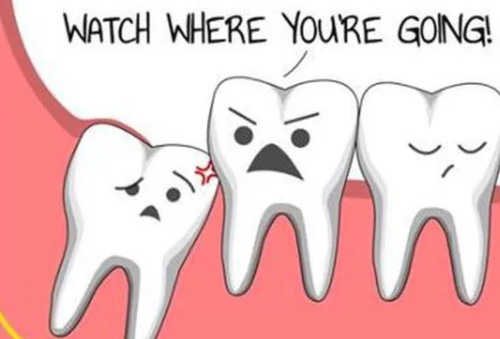Wisdom Teeth
 Wisdom Teeth: The Third Molars and Their Implications
Wisdom Teeth: The Third Molars and Their Implications
Wisdom teeth, also known as third molars, are the last set of molars that typically emerge in late adolescence or early adulthood. While these teeth can be valuable for chewing, they often pose challenges due to their late eruption and potential for complications. Here’s an in-depth overview of wisdom teeth:
1. Eruption Timeline:
- Late Arrival: Wisdom teeth generally start erupting between the ages of 17 and 25, a period often referred to as the “age of wisdom.”
2. Common Issues Associated with Wisdom Teeth:
- Impaction: Wisdom teeth may not have enough space to fully emerge, leading to partial or complete impaction beneath the gumline.
- Misalignment: Wisdom teeth may emerge at awkward angles, causing alignment issues with adjacent teeth.
- Crowding: The late arrival of wisdom teeth can contribute to crowding or shifting of neighboring teeth.
- Infection and Gum Disease: Partially erupted wisdom teeth can create pockets where bacteria accumulate, leading to infection or gum disease.
- Cysts and Tumors: In rare cases, cysts or tumors may form around impacted wisdom teeth.
3. Signs of Wisdom Tooth Issues:
- Pain or Discomfort: Aching or throbbing pain in the back of the mouth may indicate wisdom tooth issues.
- Swelling and Redness: Inflammation of the gums around the back of the mouth.
- Difficulty Opening the Mouth: Impacted or misaligned wisdom teeth can cause difficulty in fully opening the mouth.
4. Diagnosis and Evaluation:
- Dental Examination: Regular dental check-ups include monitoring the development and position of wisdom teeth through X-rays.
- Symptom Assessment: Evaluating signs of pain, swelling, or discomfort associated with wisdom teeth.
5. Treatment Options:
- Monitoring: In some cases, asymptomatic and properly aligned wisdom teeth may be monitored without immediate intervention.
- Extraction: Wisdom tooth extraction is a common solution for impacted, misaligned, or problematic wisdom teeth.
6. Wisdom Tooth Extraction:
- Surgical Removal: Extraction may involve a simple procedure for fully erupted teeth or a more complex surgical approach for impacted teeth.
- Anesthesia: Local anesthesia, sedation, or general anesthesia may be used depending on the complexity of the extraction.
7. Aftercare and Recovery:
- Pain Management: Over-the-counter or prescribed pain medications may be recommended.
- Oral Hygiene: Gentle care and proper oral hygiene are crucial during the initial recovery period.
- Follow-up Appointments: Scheduled follow-up visits to monitor healing and address any concerns.
8. Importance of Early Intervention:
- Preventive Extraction: Some dentists recommend proactive removal of asymptomatic wisdom teeth to prevent potential future issues.
Wisdom teeth can be a valuable asset when properly aligned and healthy, but they often present challenges that require careful monitoring and, in some cases, extraction. Regular dental check-ups and timely intervention can help address potential issues associated with wisdom teeth and promote optimal oral health. If you are experiencing discomfort or suspect issues with your wisdom teeth, consult with your dentist for a thorough evaluation and appropriate recommendations.
